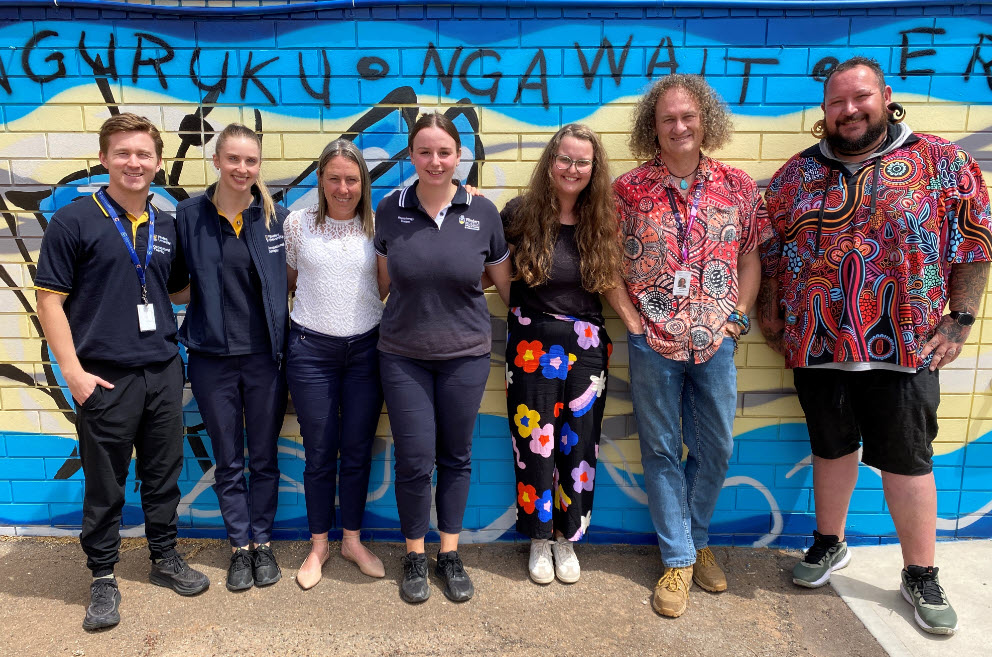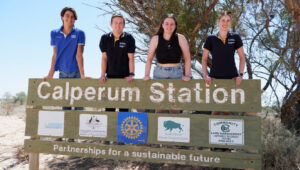
This innovative University Department of Rural Health (UDRH) program in the Riverland is an interprofessional placement for Speech Pathology, Occupational Therapy and Physiotherapy students based at the Barmera Aboriginal Health Wellbeing Centre.
Rural placements often involve a higher level of responsibility and hands-on experience due to the smaller healthcare teams and greater need for healthcare services, in turn accelerating learning and skill development. Working closely with their colleagues, this interdisciplinary collaboration and teamwork improves the student’s ability to provide holistic care in a supported clinic environment.
environment.
Aswin Asokan, in his final year of the Master of Physiotherapy, completed his placement recently and said of his experience:
“I would really love to work rurally, for the diverse experience it provides, and I was able to learn more about other disciplines from this placement. The other students became my friends, so we socialised outside work time. I was able to observe their sessions to gain a better understanding about what they do and how they ran their consultations.”
A major focus of this placement is exposure to different cultural backgrounds and perspectives, helping students develop cultural competence and sensitivity, build trust and relationships with their Aboriginal clients in the clinic.
 Not only do students learn in the clinic but spend time at nearby Calperum Station for a two day cultural immersion with local indigenous rangers and staff, learning about their culture, the importance of their relationship with the land and their people.
Not only do students learn in the clinic but spend time at nearby Calperum Station for a two day cultural immersion with local indigenous rangers and staff, learning about their culture, the importance of their relationship with the land and their people.
Pietro Trentin, final year speech pathology student shared some highlights of his time at the clinic, saying:
“This placement has been necessary for my development as a clinician and I think all students should do a rural placement to experience the community, contact with country and expansive and diverse workload. I had a client whose mother reported that he had never touched a book before and only enjoyed more physical activity through play. With the help from an OT to incorporate emotional regulation into my therapy I began exposure to books. After only one week, the client’s mother came to me ecstatic that her son every night now came to her with a book to read as a bedtime story.
The exposure to the Aboriginal community has been eye-opening, as well as weekly cultural learning workshops where we had a safe space to learn how to develop culturally safe and appropriate therapy.” Students develop cultural competence during their placement, and their work contributes to efforts to reduce rural and Indigenous healthcare disparities and develop personal growth in the process, experiencing a different way of life, connecting with nature, and being part of the Riverland community.
Although still very early in the development of this placement program we already have one confirmed workforce outcome with Pietro Trentin successfully gaining employment with the Riverland Mallee Coorong Local Health Network as part of their Speech Pathology Early Career Program.

